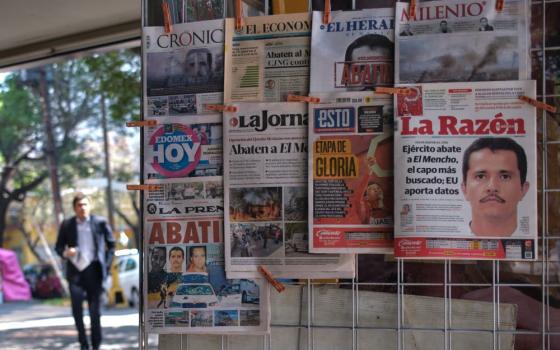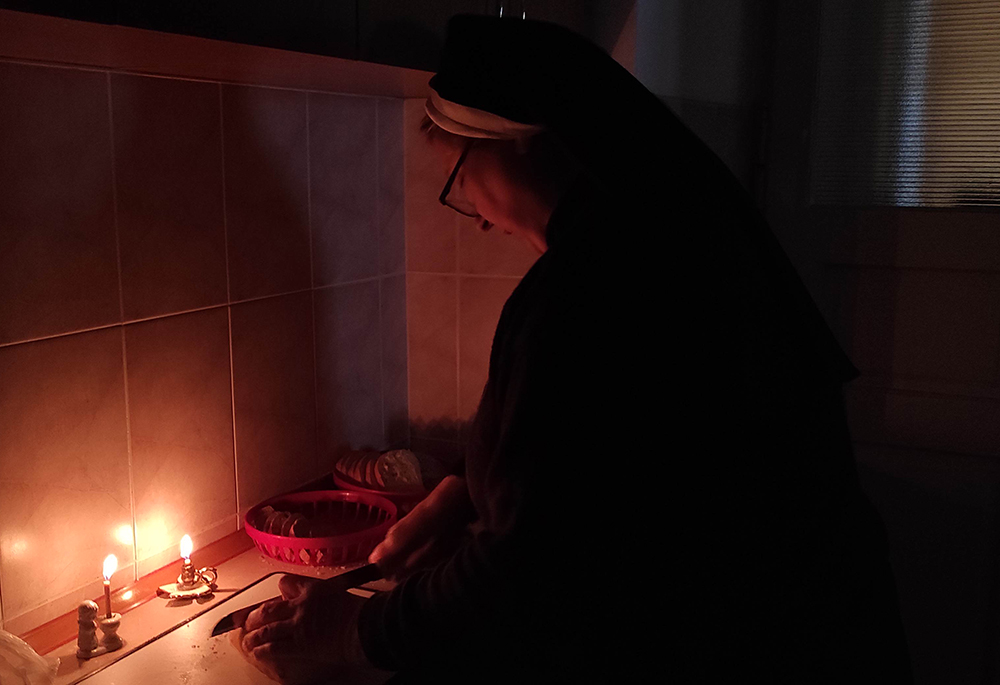
A Basilian sister prepares food by candlelight in Ukraine. As Basilian Sr. Yeremiya Steblyna writes, "The Ukrainian people have entered a time of blackout." (Courtesy of Yeremiya Steblyna)
"For God who said, 'Let light shine out of darkness,' has shone in our hearts to bring to light the knowledge of the glory of God on the face of [Jesus] Christ."
—2 Corinthians 4:6
At the end of 2021, when President Biden and American intelligence gave strong warnings that Ukraine was on the verge of war with Russia, I somehow did not really believe in these forecasts. But it happened. On Feb. 24, 2022, Russia attacked Ukraine, a free sovereign state in the center of Europe.
In early autumn, at the height of the war, Ukrainians began en masse to prepare for a severe winter, purchasing generators, flashlights, chargers, candles — anything that could provide light and heat in the event of a mass blackout. And again I somehow did not attach importance to it. I guess I really believed that people could not be so cruel, cynical, cold, or indifferent. But that's what happened. As it turned out, they can.
On Oct. 10, the first massive missile attack on Ukraine's energy system took place. We
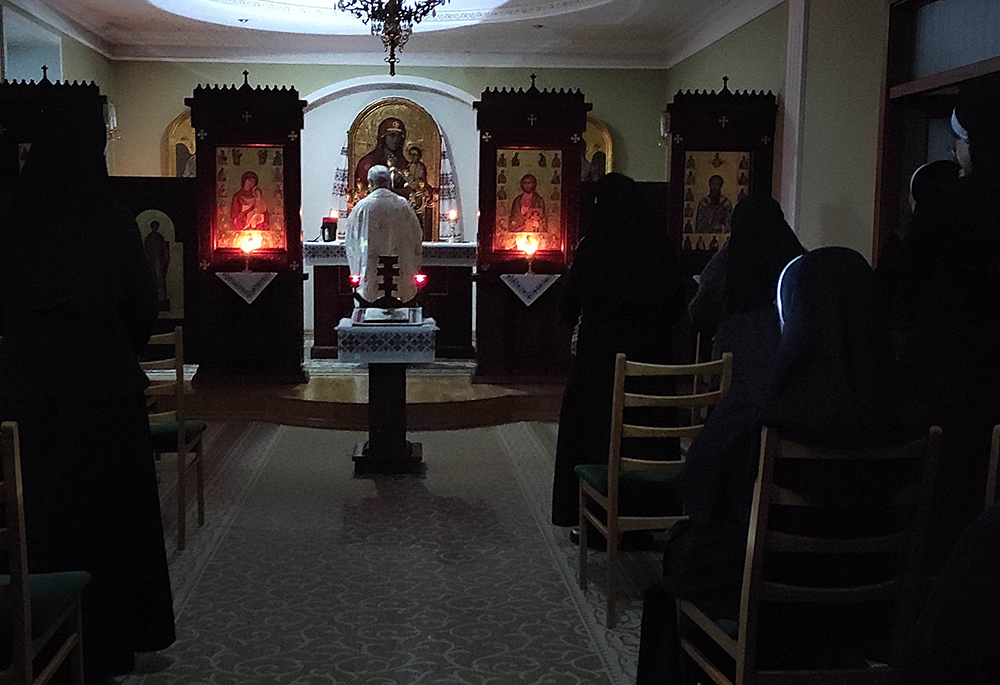
In Ukraine, Basilian sisters pray at Mass, lit by candles. (Courtesy of Yeremiya Steblyna)
Subsequently, in October and November, Russia carried out five more massive missile attacks. On Nov. 15, they fired about 100 rockets over Ukraine. Thanks to the titanic work of our soldiers from the Armed Forces of Ukraine, as well as the help of partners — in particular the United States — in supplying good air defense systems, we did not feel the full weight of this attack.
But the rockets now fly again and again. And today, about 50% of our energy infrastructure facilities have been destroyed. The Ukrainian people have entered a time of blackout.
In the monastery, we have no better conditions than other Ukrainians, so we stand in solidarity with our people, with their suffering and pain. The lights are also turned off for us, and we too have no heat or hot water. Very often, we have poor communication and mobile internet. But we are aware that there is a war going on in the country, and as long as we are fighting, we are winners. "Without light or without you?" our President Zelenskyy once asked the Russians rhetorically. And the answer is unequivocal: "Without you."
Advertisement
I wake up in the morning in a cold cell like my other sisters. It is -2 C outside the window, and there are three more months of winter ahead. There is no light. The small, warm light of the flashlight helps me get dressed, do my morning routine, and drink coffee. I'm looking carefully to see if I had time to charge my phone yesterday, because maybe even during the day I won't be able to charge it today, and I often use it as a flashlight.
In chapel we have a huge lantern whose light helps us sing matins. After the Liturgy, it is already gray outside. This means that the day is coming, and it will be brighter and warmer for all of us in our homes.
As I go to work at school, I suspect that the trams may not be running. Fortunately, this city line has electricity, and I jump into it feeling like a lucky lottery winner. But after a few stops, the lights are out because this is a different area of the city and we are on a different line. I calculate the approximate time to walk to school and walk at a faster pace. Another type of transport is simply not affordable for the average Ukrainian during the war.
At school, we check homework with students. Here, too, everything is quite complicated. Because almost everyone who lives in Lviv spent last night without electricity. Children became hostages in the situation. We discuss the homework and move forward, hoping that the students will be able to learn more at home tonight.
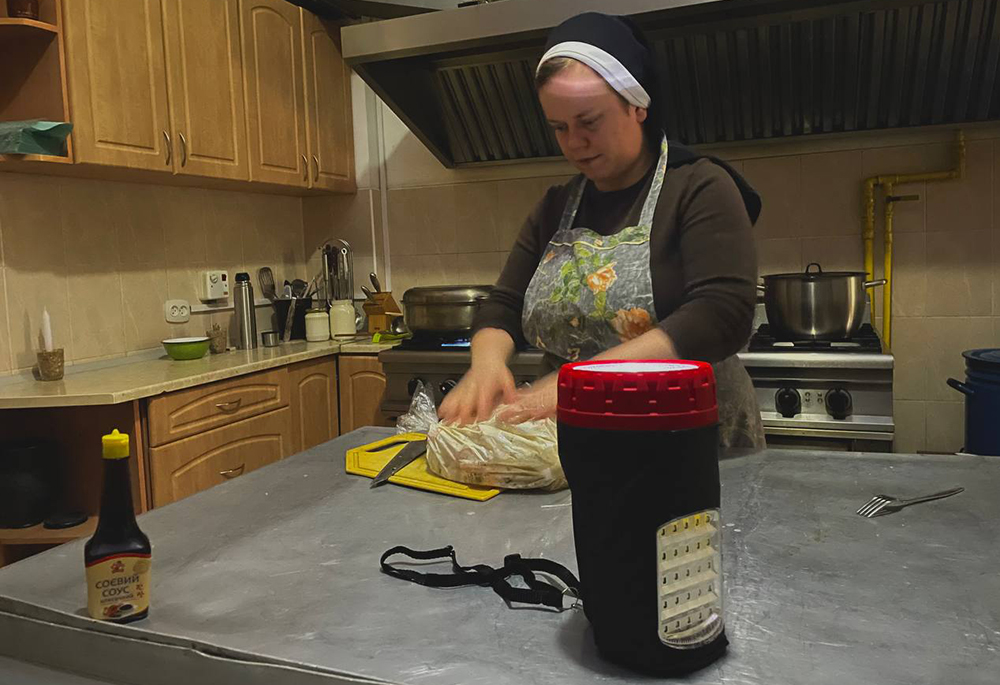
A Basilian sister prepares food by lantern in Ukraine. (Courtesy of Yeremiya Steblyna)
In the evening, I meet the sisters in the semi-dark corridor of the monastery. I wanted to turn on the light. But it turns out that the time for light on my street has run out. I ask the sisters how long the light was on. It lasted four hours. Our entire evening is again lighted by candles and flashlights. This is how we pray vespers, have dinner, and wash the dishes. The absence of light alternates with its presence for about six or eight hours, every four hours.
Sister Anna, a junior sister, is preparing to enter the university next year. But now, due to constant power outages, online training courses have become virtually impossible. I see how she does not get discouraged and looks for different ways to learn and realize her dream.
In general, I notice that none of the sisters complain, don't walk around sad or angry because of this situation. It is clear that everyone is inconvenient, uncomfortable and cold. That's the price of being a free country and free people.
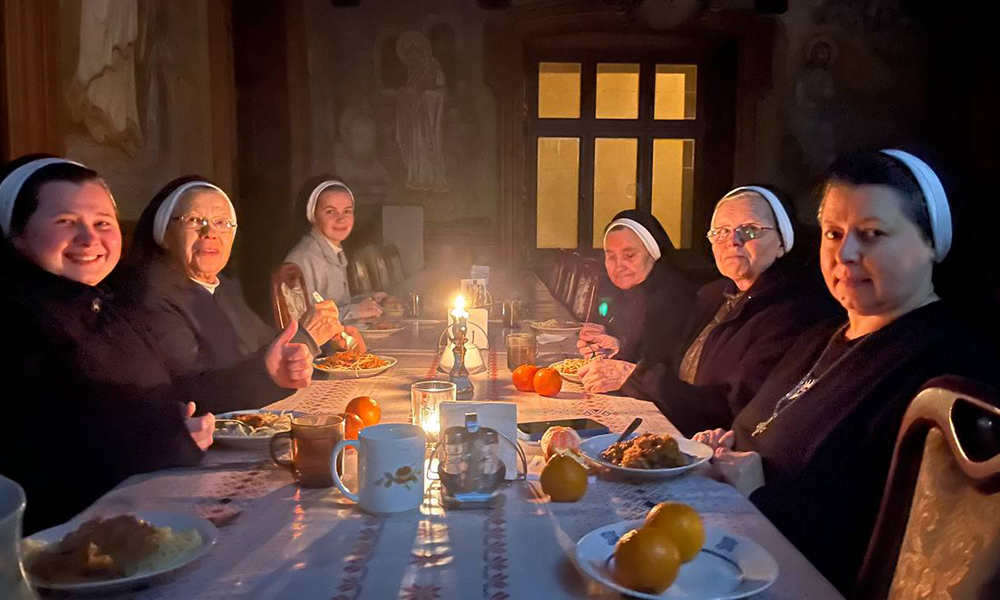
Basilian sisters in Ukraine eat a dinner lit by candles. (Courtesy of Yeremiya Steblyna)
I am writing these lines on the last Saturday of November (Nov. 26), when Ukraine, and now almost the whole world, commemorates the Day of Remembrance of the Holodomor Victims. In the last century, Ukraine and Ukrainians experienced three artificial famines, of which the 1933 famine was the most severe. According to historians, between about 4-10 million Ukrainians died of starvation at that time. I place a memorial candle and a slice of bread in my window as a sign that, even with fields of wheat, my nation was starving.
Almost 100 years have passed, and Russia continues to destroy my people only because they are indomitable and free. The teeth of imperial ambitions break against the steel men of the Armed Forces of Ukraine (just remember "Azovstal" and its volunteers)! This time, the terrorist country arranges for us not a Holodomor, but a cold extermination — where death, according to their expectations, should come from the cold.
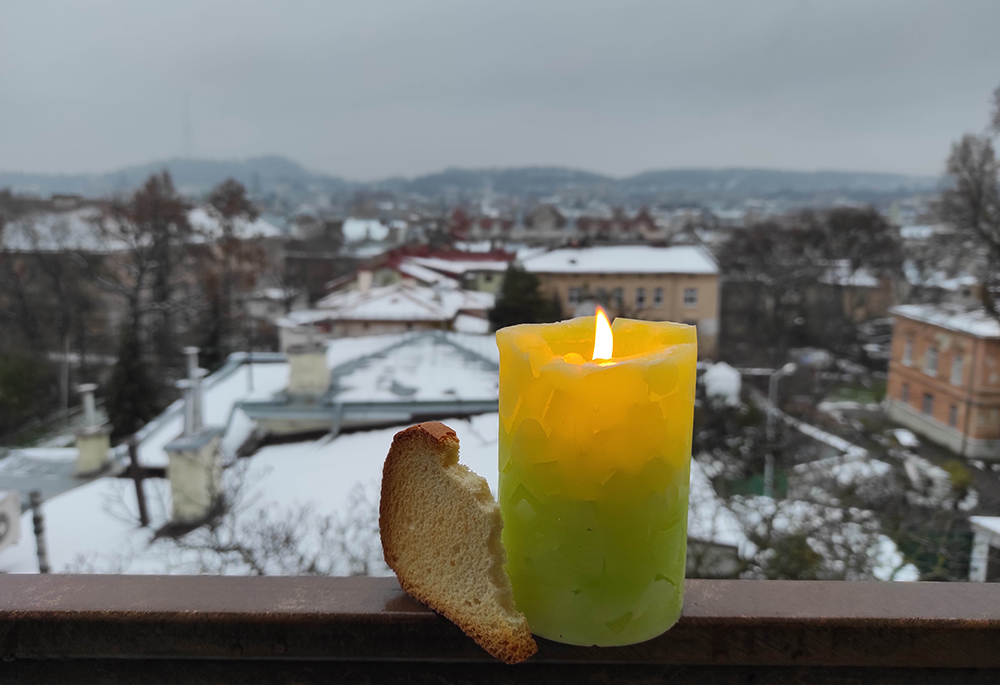
A memorial candle and a slice of bread are pictured Nov. 26 in Ukraine. Basilian Sr. Yeremiya Steblyna placed the candle and bread in her window on the Day of Remembrance for the Holodomor Victims, as a sign that "even with fields of wheat, my nation was starving in the 1933 famine in Ukraine." (Courtesy of Yeremiya Steblyna)
It would seem that in this alarming situation one could begin to hate everything, especially the enemy. This spiritual darkness helps us clarify God's word: "Just so, your light must shine before others, that they may see your good deeds and glorify your heavenly Father." (Matthew 5:16). So that our light is not only external, but comes from the heart, the Basilian sisters continue to pray, volunteer and help, even in the dark.
Recently, Scott Kelly, an American astronaut and retired captain of the U.S. Navy, who holds a record for being in space, came to our darkness as a result of the missile strikes in Kyiv. His words (according to a Facebook post from a Ukrainian journalist) are very valuable for every Ukrainian today: "I've been to outer space four times. I thought the most beautiful light came from the stars. Now I know that it comes from human hearts."





